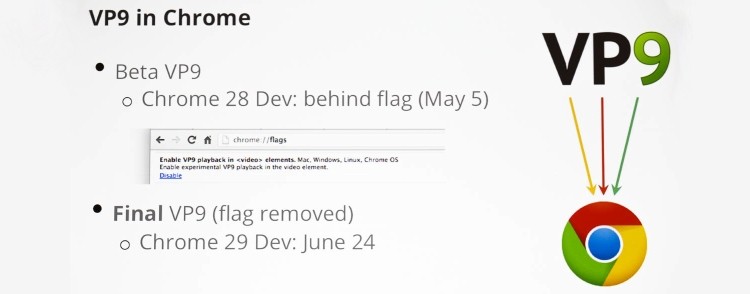Jesse
Posts: 358 +42
Last week at I/O 2013, Google said it is nearly finished developing the new royalty-free VP9 video codec. The new specification is available now for testing, and will be officially finalized on June 17, reports CNET.
Through VP9, Google promises a fifty percent gain in compression levels over current VP8 and H.264 standards, while maintaining the same video quality. This efficiency translates to massive savings for video streaming services like YouTube, which output huge amounts of data every second.

When compared to VP8 and H.264, VP9 sounds amazing. However, H.264 is nearly a decade old, and its successor, HEVC, or H.265, is complete and offers the same gains in performance. Head-to-head with H.265, Google says that VP9 is approximately one percent more efficient overall, but this varies from one video to the next.
A one percent gain will add up for giants like YouTube, but for most projects, it’s negligible in practice. Not only that, but H.264 is extremely popular, and is the de facto video standard in many cases; it’s not a stretch to think that H.265 could gain the same popularity. The major differentiating factor between the two new competing standards is licensing. VP9 is royalty-free, while H.265 is licensed through the MPEG LA organization.
Whether it's just convenient or was always intentional, Google seems to be looking out for the little guy here, and perhaps gaining a minor amount of credibility back to its mantra, “Don't be evil.” Concerning video projects by schools, startups, or programmers, Matt Frost, senior business product manager for the Chrome Web Media Team said, "We have to make sure they're not writing five or six million dollar checks every year to standards bodies."
The rapid adoption that Google is pushing for is relatively easy in the agile web browser ecosystem, but presents many issues in other arenas. For example, it will take a long time for standard hardware support in mobile chips for phones and tablets that will allow for video decoding without quickly draining battery life.